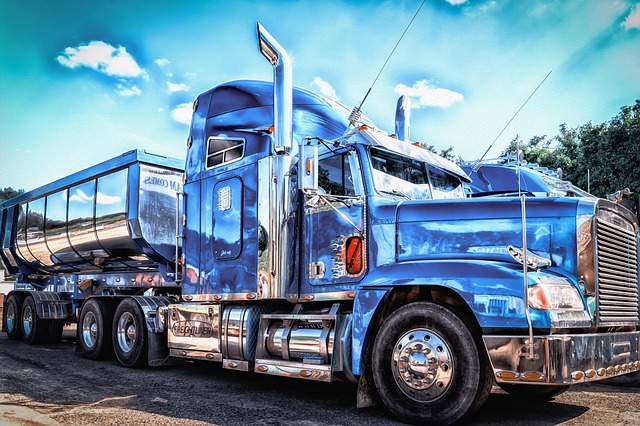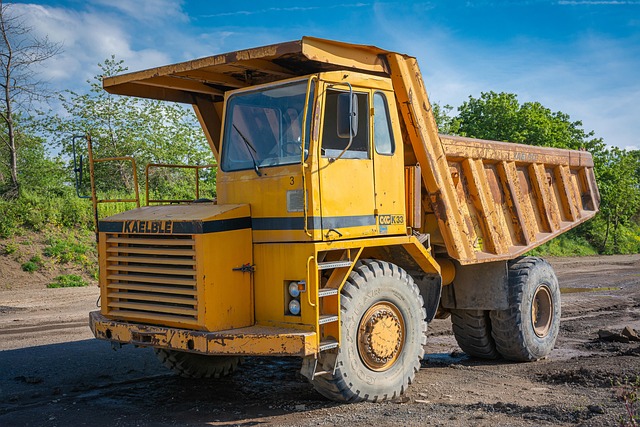Multi-truck small businesses face unique risks, with immediate threats including vehicle physical damage from accidents or natural disasters. Physical Damage Policies offer crucial protection, covering repair/replacement costs and fostering proactive risk management. These policies enable business continuity, minimize disruptions, and allow owners to focus on recovery. Investing in comprehensive coverage solutions, emphasizing physical damage policies and liability insurance, is vital for long-term success and stability in unpredictable markets.
In today’s dynamic business landscape, small multi-truck operations face unique risks that demand comprehensive strategies. This article explores how businesses can build resilience through tailored insurance solutions, focusing on the critical role of physical damage policies. We delve into understanding the specific vulnerabilities these enterprises encounter and craft coverage options to safeguard against potential losses. By implementing robust policies, operators can navigate challenges with confidence, ensuring their business’s longevity and stability.
Understanding Multi-Truck Small Business Risks

Multi-truck small businesses face unique risks that require tailored strategies for building resilience. One of the most immediate and significant threats is physical damage to vehicles, which can result from accidents, natural disasters, or vandalism. These incidents not only cause financial loss but also disrupt operations, as a fleet of trucks out of commission can severely impact delivery schedules and customer satisfaction.
Comprehensive insurance policies designed for such businesses play a pivotal role in mitigating these risks. Physical damage policies, for instance, offer protection against the cost of repairing or replacing vehicles after accidents. By ensuring these policies are up-to-date and align with the business’s needs, small fleet operators can safeguard their investment and maintain continuity in their operations.
The Role of Physical Damage Policies

Physical damage policies play a pivotal role in building resilience for multi-truck small businesses. These policies ensure that should any unforeseen events lead to physical damages, such as accidents or natural disasters, the business is financially prepared to handle the aftermath. By covering the cost of repairs or replacement, these policies safeguard assets crucial for daily operations, including vehicles, equipment, and facilities. In the event of physical damage, a comprehensive policy can help businesses maintain continuity, minimizing disruption to their services and supply chains.
Moreover, physical damage coverage encourages risk management strategies. Businesses equipped with such policies are more likely to invest in preventative measures, regular maintenance, and emergency preparedness plans. This proactive approach not only reduces the likelihood of severe damages but also ensures that when challenges arise, they are met with a well-reheared response, fostering resilience and adaptability in an unpredictable business landscape.
Crafting Comprehensive Coverage Solutions

Crafting comprehensive coverage solutions is a strategic move for small businesses aiming to build resilience against potential risks, especially in the face of multi-truck operations. Physical damage policies play a pivotal role here, offering protection against unexpected events like accidents, natural calamities, or property theft. These policies ensure that the financial burden associated with repairing or replacing damaged vehicles and equipment is mitigated, allowing business owners to focus on recovery and continuity rather than immediate monetary concerns.
Comprehensive coverage solutions should also include provisions for liability insurance, which safeguards against legal repercussions arising from accidents involving company trucks. By integrating these protective measures, small businesses can navigate challenges more confidently, ensuring their operations remain stable even during unforeseen circumstances.
Building Resilience: Strategies for Longevity

Building resilience is a key strategy for small multi-truck businesses aiming for longevity in an unpredictable market. Comprehensive policies play a pivotal role in this process, offering protection against potential physical damage and fostering a stable operational environment. By implementing robust risk management strategies, businesses can safeguard their assets and minimize downtime. This includes investing in specialized insurance plans that cover vehicle repairs, replacement costs, and liability associated with on-the-job incidents.
Such policies enable business owners to navigate unexpected challenges, such as accidents or natural disasters, with greater ease. They provide a safety net, ensuring operations can continue despite unforeseen setbacks. With well-crafted physical damage policies in place, small businesses can focus on growth and adaptability, knowing their foundation is robust enough to withstand external shocks.
Multi-truck small businesses face unique risks, including physical damage to their fleet. Implementing comprehensive physical damage policies is a crucial step in building resilience and ensuring long-term stability. By carefully crafting coverage solutions that address these specific needs, business owners can protect their investments, minimize financial losses, and navigate potential challenges with greater confidence. Embracing proactive strategies outlined in this article will empower operators to foster a robust and adaptable business model, ultimately contributing to their success in an ever-evolving landscape.
